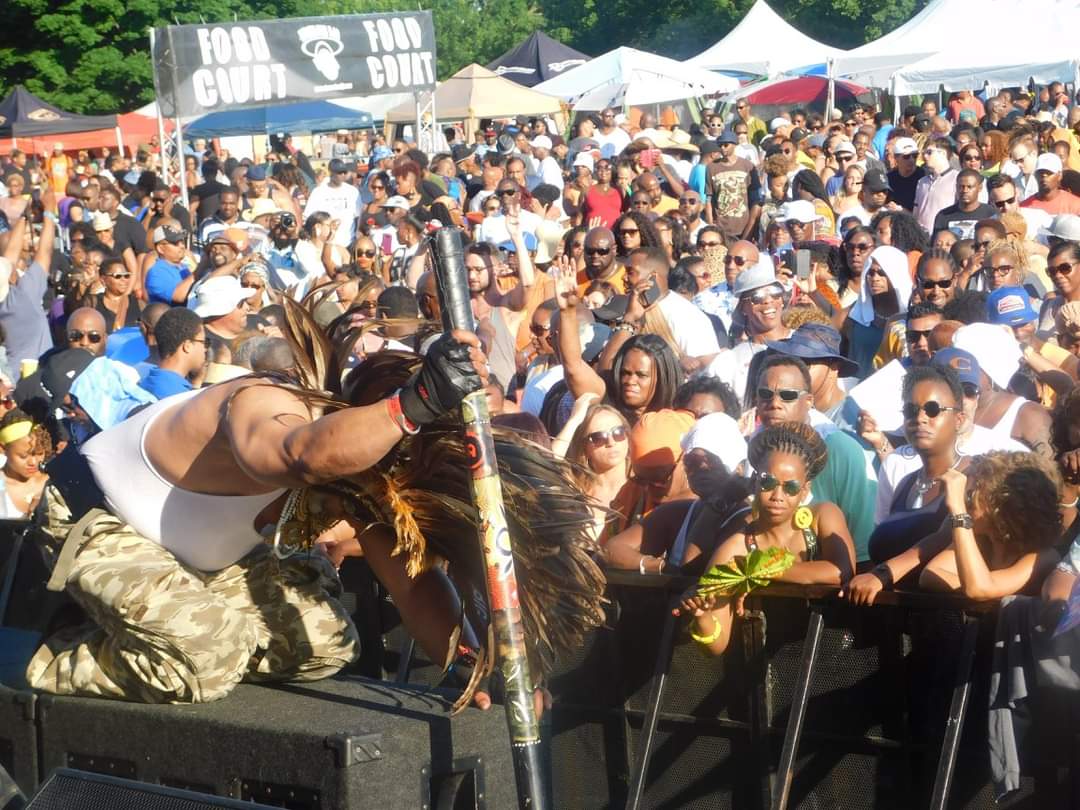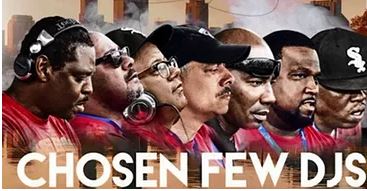 Music is often defined as a form of art using sound, organized in time. It’s a form of entertainment that affectionately brings melodies together that move hearts, minds, bodies, and spirits. With the many genres of music that exist in the world, there is one that stands out to those who believe that music is love. House Music. Deemed the music of love, it’s the genre of music known to bring together people from all walks of life as one in peace and love. This year, The Black Harvest Film Festival has chosen The Woodstock of House as one of the films to showcase to continue their rich legacy of highlighting black cinema. In honor of celebrating House Music and the new film, The Chicago Defender had the opportunity to sit down and chat with the film’s producers; Tressa Epps (Chicago-producer), Vonda Paige (Los Angeles-producer), Rodrick F. Wimberly (Chicago-producer, director), Steve Toles (Ohio-producer), and Senuwell Smith (Los Angeles-director) to gain some insight to creating a film that highlights and celebrates House Music.
Music is often defined as a form of art using sound, organized in time. It’s a form of entertainment that affectionately brings melodies together that move hearts, minds, bodies, and spirits. With the many genres of music that exist in the world, there is one that stands out to those who believe that music is love. House Music. Deemed the music of love, it’s the genre of music known to bring together people from all walks of life as one in peace and love. This year, The Black Harvest Film Festival has chosen The Woodstock of House as one of the films to showcase to continue their rich legacy of highlighting black cinema. In honor of celebrating House Music and the new film, The Chicago Defender had the opportunity to sit down and chat with the film’s producers; Tressa Epps (Chicago-producer), Vonda Paige (Los Angeles-producer), Rodrick F. Wimberly (Chicago-producer, director), Steve Toles (Ohio-producer), and Senuwell Smith (Los Angeles-director) to gain some insight to creating a film that highlights and celebrates House Music.
Chicago Defender: What is the “Chosen Few” legacy?
Rodrick Wimberly: The legacy of the Chosen Few is left up to interpretations by different people. You have different stories of the origin of House music. That’s one of the reasons why the history of Chicago House Music is so rich. After people watch the film, I believe they’ll have a much better understanding of the historical basis and development of what House Music is. More importantly, the development of the film was to show the significance of House Music, why it was necessary from a sociological standpoint. I would say that The Chosen Few’s legacy helped create a genre and took it from a small enclave of private clubs to a broader, more universal audience. This allowed for Chicago, one of the most segregated cities in the country, to bring people together. The most incredible legacy of The Chosen Few is that it helped to create a genre of music but also an entire sub-culture of human-culture expression focused on unity, peace, and love.
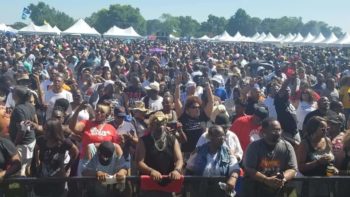 Chicago Defender: Why do you deem House Music as the music of love?
Chicago Defender: Why do you deem House Music as the music of love?
Tressa Epps: House music is considered the music of love because it’s freeing, exhilarating, it makes your heartbeat, and you feel the love wildly when dancing. When you’re dancing, you feel the beats, you feel a deep connection with it, and that’s why House music is deemed the music of love.
Chicago Defender: Why is the film named The Woodstock of House?
Vonda Paige: In the ’90s, the Chosen Few picnic grew from close family members and friends into thousands of participants. I think people started referring to it as The Woodstock of House because there were some similarities. For example, Woodstock ‘69 was about peace, love, and groups of people coming together. With The Woodstock of House, I think people recall the feeling of love, peace, and unity that House music inspires, and it just continued to grow. So, I think the term is an affectionate one. Interestingly, Woodstock of ‘69 was a one-time occurrence, whereas the Woodstock of House is an annual event.
Chicago Defender: What was the inspiration for the film?
Steve Toles: The music itself was the inspiration for the film. Rodrick introduced me to House music, and for years he tried to get me to come to the Chosen Few Picnic. We DJ’d together, and he knew that I would love the picnic. So I decided to come one year, and after attending, I told him we had to film this. We had to show this to the world, and from there, six years later we have a film. I felt so moved by the music that I had to give something back to it, which was the best way.
Chicago Defender: Why was it necessary to have interviews from consistent participants of the Chosen Few picnic?
Rodrick Wimberly: One of the reasons we interviewed people was because most of the time when you see documentaries on House music, it’s all about the personalities; the DJ’s, the promoters, or the “big people,” but House music is comprised of the people who love it. That’s why it was essential for us to talk to the everyday people and the dancers as well. It was vital for us to have that so people could get the real feel of what they experienced and their love affair with House music and how it changed their lives. As a team, we felt that it would be more impactful as a human story, so when we presented it, people could tie into aspects of it, even if they don’t know much about House music.
Chicago Defender: What is that you want people to take away from the film?
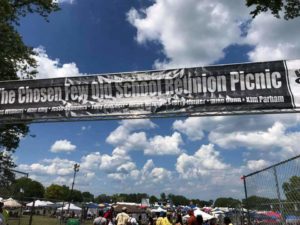 Rodrick Wimberly: I think what we wanted to show was the human cultural experience surrounded by the music. What makes it so unique is that it is truly black love on display. It’s like a real-life Wakanda. There’s so much love and so much excellence. When I spoke to Steve about it, I said that this is a story we have to tell people to understand it truly. It also serves as a message of hope to black people that 50,000 black people can come together in arguably the most violent place in the city, survive and cultivate this love to each other.
Rodrick Wimberly: I think what we wanted to show was the human cultural experience surrounded by the music. What makes it so unique is that it is truly black love on display. It’s like a real-life Wakanda. There’s so much love and so much excellence. When I spoke to Steve about it, I said that this is a story we have to tell people to understand it truly. It also serves as a message of hope to black people that 50,000 black people can come together in arguably the most violent place in the city, survive and cultivate this love to each other.
Tressa Epps: One of the things I wanted to come out of this was to view this as a legacy of how teenagers came together and collaborated to make history all over the world. That’s what I wanted people to get out of it. So I believe the film would be a good thing for the community and realize that we can practice the universal language of love when we come together.
Steve Toles: One of the things I hope people take away from this is that, as black people, take bits and pieces from things and create something that becomes a worldwide phenomenon. We create something new, and we give it to the world. We built something out of love and gave it back in love.
Senuwell Smith: When I was young, I would listen to House music, and there was so much energy in it, and I would love to dance. That’s what I want to share about it. That old and young people can dance together to this music as one, and not be placed into a category. We can share this music no matter what age or color you are, and it’s been a while for that.
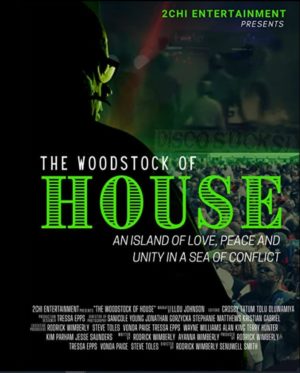 ‘THE WOODSTOCK OF HOUSE” details the triumph of disco music, attacked by mainstream America in the 1970s for being too black, Latin, and gay. Its mutation, development, and re-birth as House Music by African-American teenagers on the South Side of Chicago in an underground culture of marginalized, largely gay nightclub constituents. This is the untold story of the role of Chicago’s Chosen Few DJs in the creation and popularization of this international musical genre and the celebration of the 25th Annual Chosen Few Music Fest, where 50,000 people of different races, ages, and sexual orientation come together in unity, peace, and love in one of the most challenging environments in the country. –Rodrick Wimberly
‘THE WOODSTOCK OF HOUSE” details the triumph of disco music, attacked by mainstream America in the 1970s for being too black, Latin, and gay. Its mutation, development, and re-birth as House Music by African-American teenagers on the South Side of Chicago in an underground culture of marginalized, largely gay nightclub constituents. This is the untold story of the role of Chicago’s Chosen Few DJs in the creation and popularization of this international musical genre and the celebration of the 25th Annual Chosen Few Music Fest, where 50,000 people of different races, ages, and sexual orientation come together in unity, peace, and love in one of the most challenging environments in the country. –Rodrick Wimberly
House music, The music of love, peace, and unity. Chosen Few Djs Alan King, Wayne Williams, Terry Hunter, Jesse Saunders and Kim Parham also serve as executive producers of the film. The Woodstock of House will air in-person Thursday, November 11th, and Friday, November 12th at the Gene Siskel Film Center. For more information or to purchase tickets, please visit www.siskelfilmcenter.org/woodstockhouse.
Liz Lampkin is a Lifestyle, Love, and Relationships writer. Follow her on social media @Liz_Lampkin

